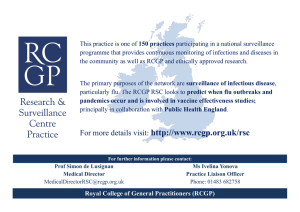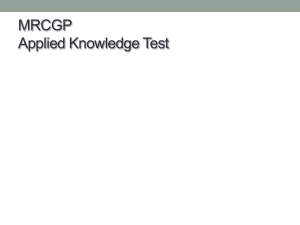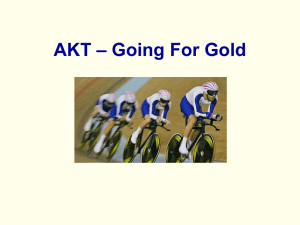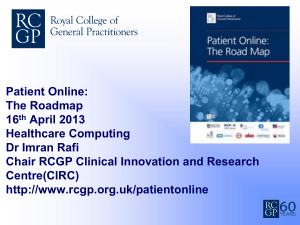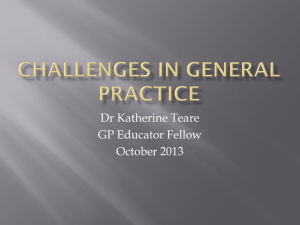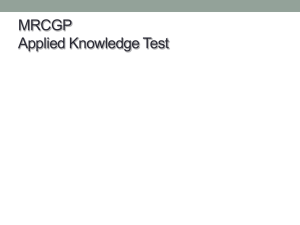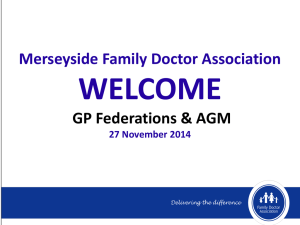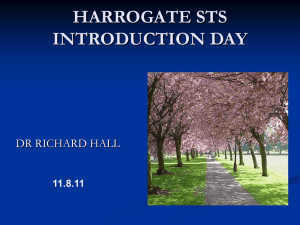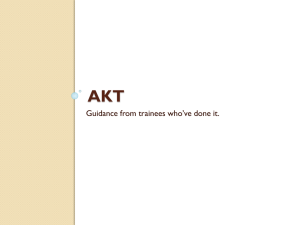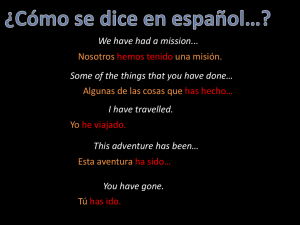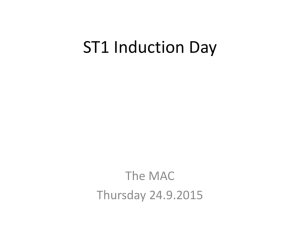Faisal*s AKT hints and tips
advertisement
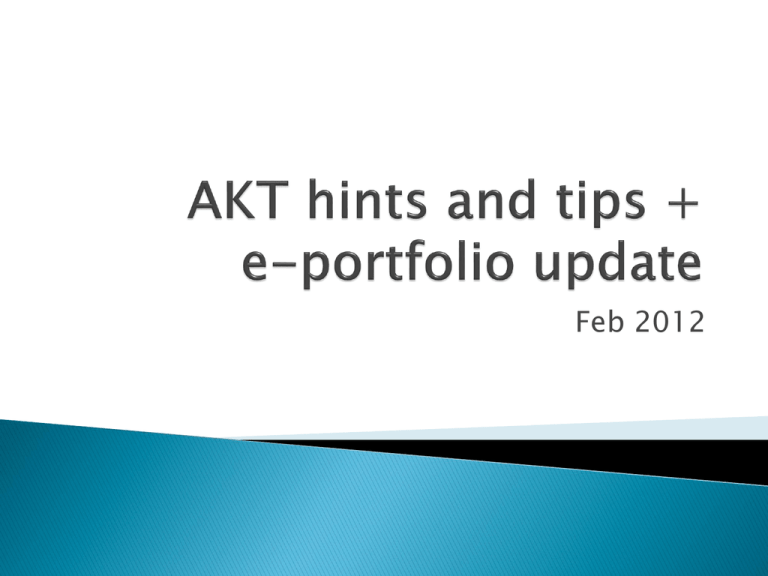
Feb 2012 Came into effect from 2011 Clinical encounters: At least 3 per month Professional conversations: No minimum but should include all meetings with supervisors, and any complaints or feedback Tutorials: No minimum, but document all tutorials Reading: No minimum, enter learning points likely to change your practice Lecture/Seminars: All day release sessions attended plus one presentation/case study every 6 months Out of hours work: All out of hours sessions documented with supervision document attached Audit: At least one audit or project involving critical review and change in practice during training Significant Event Analysis: At least 3 per 6 month job (2 per 4 month job) 3 hour exam at Pearson Vue test centre 200 questions ◦ Single best answer; extended matching questions; table/algorithm; picture/video; data interpretation; free text. 80% clinical, 10% critical appraisal/evidence based medicine, 10% admin/ethical/legal Offered Oct/Nov, Jan/Feb, and April/May Maximum of 4 attempts for trainees starting from 1st August 2010 onwards No negative marking Questions performed poorly by the majority of candidates are removed from the final marks Pass mark = 136/200 (68.0%) Overall pass rate = 74.9% ST3 first time takers pass rate = 81.0% ST2 first time takers pass rate = 79.2% (This ratio varies in different diets of the AKT taken at different times throughout the training year) Cumulative pass rate for all those in ST3 after 3 attempts is approximately 94% Diagnosis and management of acutely unwell patients – common injuries, acute abdominal pain Eye problems – identifying patients who require urgent specialist assessment Personal and professional responsibilities – patient/practice interface, GMC guidance, certification Remember that, as in real life, the “do nothing” option may be correct GP Curriculum BNF GMC Good Medical Practice RCGP Essential Knowledge Updates Cochrane NICE SIGN BMJ Review articles & original papers BJGP 2-3 months Best done in GP job ◦ No regular oncall ◦ Link in with cases seen directly ◦ Link GP tutorials with revision Before starting revision familiarise yourself with the presentations and information on the RCGP website, and detailed feedback Before exam familiarise with demonstration tutorial on Pearson Vue website Passmedicine ◦ Best feedback from previous trainees ◦ Over 2500 qs, do it twice (£20 4 months) nPEP ◦ 100 qs, similar to exam (but easier) ◦ Register via RCGP Scotland website Essential Knowledge Updates ◦ Do the challenges (25 qs each, I think!) ◦ Similar format to the exam Others: Pasttest; Onexamination; AKT revision.com; sample paper/Innovait sample questions RCGP website. RCGP ◦ £50 (refundable) ◦ Held in Engineers house ◦ Stats part and mock exam useful Una coales course ◦ £240 (so pricey!) ◦ Tips on current questions and hot topics (some qs turned up in the exam) ◦ Mock exam is good Question books: ◦ NMRCGP Practice Papers: Applied Knowledge Test by Rob Daniels (pasttest) some dodgy answers ◦ NMRCGP Applied Knowledge Test Study Guide: Sample Questions and Explanatory Answers by Aalia Khan (Masterpass) Good explanation but a bit easy Dr Una Coales's MRCGP AKT Hot Topics by Una Coales Oxford handbook of General Practice Medical Statistics Made Easy by Michael Harris CKS: www.cks.nhs.uk/ GPnotebook: www.gpnotebook.co.uk/ Dermnet (pictures from here were in the exam I think): www.dermnet.com/ NICE ◦ Last 12 to 18 months (anything published in the last 3 months prior to exam unlikely to turn up according to RCGP course) SIGN/BTS Resus council guidelines: anaphylaxis, choking, BLS
